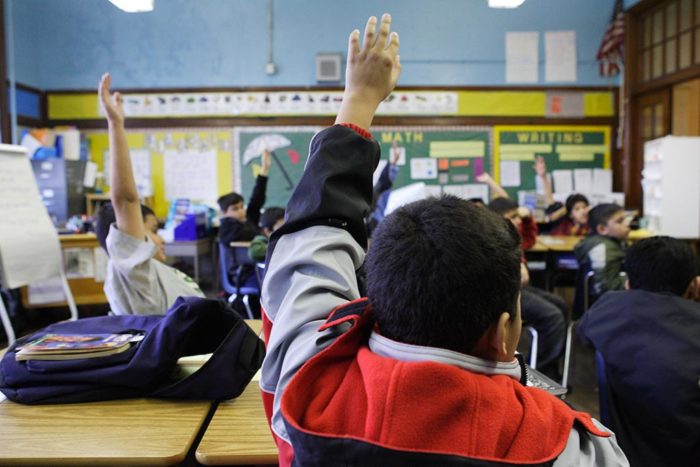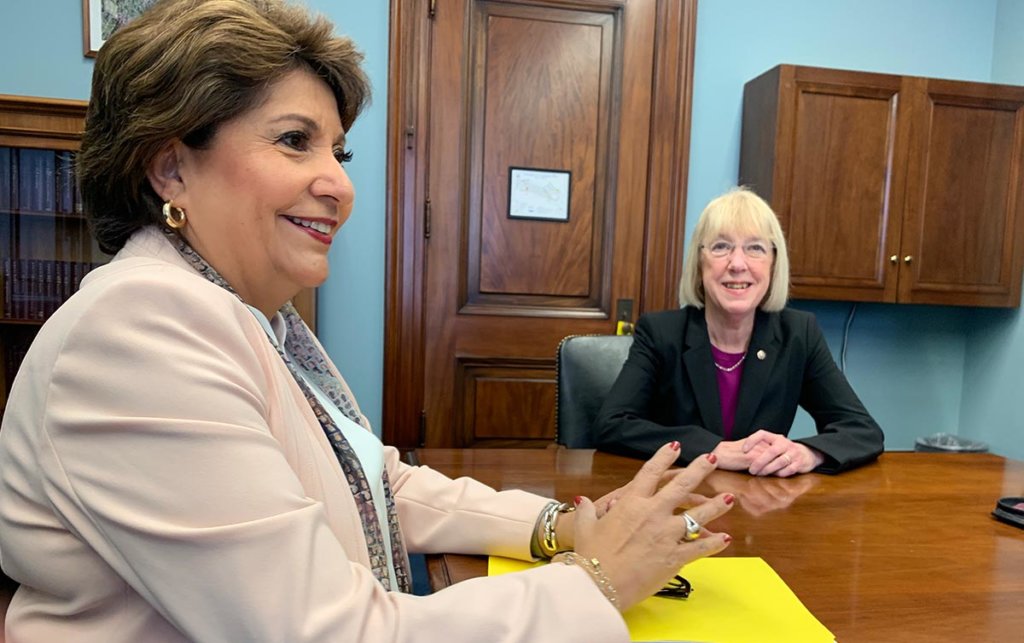Florida’s Education Plan Wins Federal Approval, but Civil Rights Groups Push Back

After more than a year of deliberating and two failed attempts at approval, the U.S. Department of Education finally greenlit Wednesday Florida’s plan for the Every Student Succeeds Act (ESSA), the federal law governing US education policy from Kindergarten through 12th grade. All 50 states, the District of Columbia, and Puerto Rico now have approval for their ESSA plans, but UnidosUS and several other prominent civil rights groups remain concerned that the one proposed by the administration of Florida Gov. Rick Scott will fail historically underserved populations.
UnidosUS had been pushing for Florida to enhance its school grading system to include students of color, low-income students, students with disabilities, and English language learners since ESSA was signed into federal law in December 2015. They also asked legislators to include an English language proficiency indicator and make every effort to test children in their native language to ensure their continued progress toward the goal of high school graduation.
“We remain gravely concerned over the approval of Florida’s education plan and the long-term implications this will have for our most vulnerable students,” says Jared Nordland, Florida Senior Strategist at UnidosUS.
“We as a civil rights organization should be vigilant,” says UnidosUS Florida Education Organizer Alejandra Rondon, noting that Florida’s educational decisions have often served as an example to other states.
ESSA is rooted in legislation the administration of Lyndon B. Johnson signed into law more than 50 years ago at the height of the civil rights movement. It came on the heels of school desegregation and aimed to level the playing field for underserved students. The law has been reinstated with bipartisan support every few years since.
In 2001 US President George W. Bush signed another variation of that law, the No Child Left Behind Act, which stayed on the books until 2015. One of its greatest supporters was the president’s brother Jeb Bush, who served as Florida governor from 1999 to 2007. He pushed himself as an education governor, and after he left office, he remained one of the nation’s staunchest proponents of school choice. One of his grounding achievements as governor was Florida’s A-F grading system, which has been emulated by numerous other states. Non-partisan civil rights groups like UnidosUS have also campaigned for greater accountability, provided the measuring systems take the most vulnerable students into account.
“Florida’s plan meets the requirements of the law, so I am pleased to approve it,” U.S. Secretary of Education Betsy DeVos said in a statement released Wednesday. “Today marks a significant milestone in the implementation of this important law. As we move into the next phase, we look forward to working with states as they bring their plans on paper to life and use the flexibilities afforded in ESSA to innovate and improve educational opportunities for all students.”
But many civil rights advocates worry the plan for Florida, a large, diverse state with around 300,000 English language learners, may fail to comply with federal guidelines by not including an ELP indicator as a components of a school’s grade; refusing to employ native-language assessments to better evaluate overall learning; lumping together the lowest-performing students rather than assessing the performance and needs of each subgroup separately; and creating a completely separate federal index school grading system.
FLORIDA’s ESSA PLAN IS NOT SUFFICIENT
In the approved plan, Florida continues to use its A-F school grading system and creates a new Federal Points Index, which includes an ELP indicator, but critics say this is not sufficient to meet ESSA requirements.
“The problem is that all the information that matters is going to be in the Federal Points Index but not in the original A-F grading system,” says Ryan Pontier, Assistant Professor of Bilingual Education in Florida International University’s School of Education and Human Development, in an interview with Progress Report. He says this new plan continues to conceal important data. “Schools likely won’t be held accountable for what’s reported in the Federal Points Index,” he says.
Hours after the US Department of Education’s approval, the Florida League of United Latin American Citizens (LULAC Florida), the nation’s oldest Latino rights organization, issued a statement saying that “Florida’s plan pretends to but does not actually meet the requirements of the law, protect our most vulnerable students, provide clear and honest information about the performance of schools, or improve the quality of education of all Florida students.”
Both LULAC Florida and UnidosUS say they will continue to push for better representation and accountability in the new ESSA plan, regardless of who wins Florida’s mid-term elections.
“Despite this flawed decision, we will continue to fight to ensure the academic progress of all students is accounted for in the system and not swept under the rug by the state’s leadership, special interest groups and U.S. Secretary of Education Betsy DeVos,” Nordland says. “Florida students deserve a high-quality education and we will work with Florida’s new governor and state legislature to modernize state law to protect the rights of all Florida students, especially students of color and English Learners.”
-Author Julienne Gage is the Senior Web Content Manager for Progress Report.



